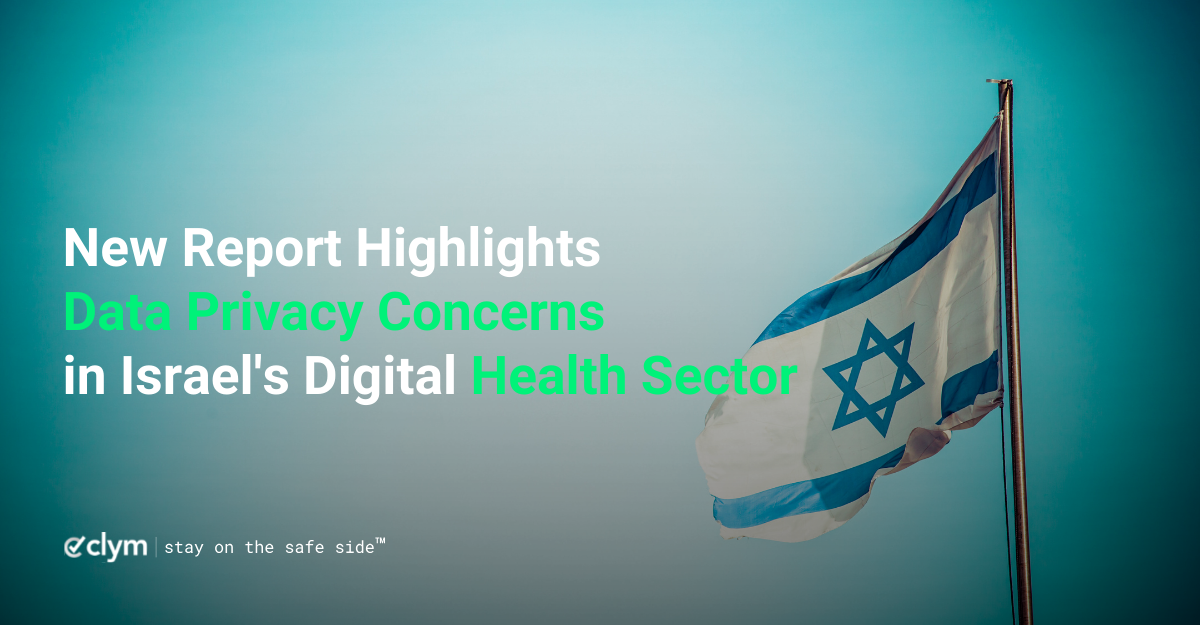New Report Highlights Data Privacy Concerns in Israel's Digital Health Sector

A recent report conducted in April 2024 and published on May 2, 2024 by Israel's Privacy Protection Authority has shown that there are currently significant privacy challenges present in the digital health sector. The report comes following a detailed audit conducted across various healthcare providers and indicates an urgent need for better security measures and adherence to privacy regulations that mandate the protection of patient information in this rapidly evolving field.
The report’s findings show that several digital healthcare services are lagging in implementing adequate security protocols, thereby exposing patients’ data to potential risks. According to the audit, these lapses could undermine patient confidence and compromise health outcomes. As the sector expands, the necessity of establishing robust security frameworks to keep pace with technological advancements becomes evident.
Digital healthcare in Israel has expanded rapidly, particularly evident during the COVID-19 pandemic, which accelerated the adoption of remote medical services. This transformation has significantly increased the amount of sensitive patient data being collected and processed, showing the urgent need for robust privacy measures. In a related policy document, Israel’s Data Protection Authority covered the protection of patients’ privacy when transferring their medical information through digital means, further stressing out the importance of data privacy in the health sector. Both the report and the policy document show the need for immediate changes to the way data is being handled.
The audit reviewed 11 healthcare bodies, focusing on their compliance with privacy laws and regulations and revealed the following key points:
- Data Sensitivity: Healthcare providers collect and store highly sensitive information, including medical histories and biometric data, which requires stringent protection measures.
- Compliance Levels: The average compliance score across the sector was found to be 64%. While most entities showed a high level of adherence, about 30% were only partially compliant.
- Security Breaches: There are significant risks of data breaches which could lead to exposure of sensitive information, emphasizing the need for improved security protocols.
Based on the findings, the Privacy Protection Authority proposed several recommendations, such as:
- Security Officer Appointment: Every entity should have a designated security officer directly responsible for overseeing data security.
- Regular Security Audits: Entities should conduct bi-annual security audits to ensure continuous protection and compliance with privacy regulations.
- Vendor Management: When using external services for data processing, healthcare providers must rigorously assess potential security risks before engagement and ensure that all agreements reflect stringent data security obligations.
- Improving Data Management: Strengthening the management and security of data repositories, with particular attention to encryption and access controls.
In addition to these, the report advocates for greater transparency in how patient data is utilized by healthcare providers. It suggests that patients should be fully informed about how their data is handled, who has access to it, and for what purposes, which is crucial in maintaining trust between patients and healthcare providers.
Furthermore, healthcare staff should be trained not only in the technical aspects of data handling but also the ethical and legal implications of data breaches. Staff should be made aware of the severe consequences of mishandling patient information, both from a legal and trust perspective.
As regards data breaches, it is advised that healthcare providers develop clear procedures for responding to data breaches. These procedures should include immediate steps to secure data, assess the impact of the breach, notify affected individuals, and prevent future occurrences. By preparing for potential data security challenges, healthcare providers can safeguard patient information more effectively, thereby upholding their commitment to patient privacy and trust in a digital age.
Despite the high stakes involved, the audit revealed gaps in the knowledge and implementation of data protection standards among healthcare providers. The shift towards digital healthcare is inevitable and brings numerous benefits. However, this transition must be navigated carefully to protect patient privacy and secure sensitive data against potential breaches. The recommendations provided by the Privacy Protection Authority offer a roadmap for healthcare providers to enhance their data protection practices, ensuring that they not only comply with legal requirements but also protect their patients' trust. In addition to this, Israel’s Authority has made it clear that it will not hesitate to enforce penalties as mandated under Israel’s Data Protection Law.